The Pandemic Has Led to the Rise of Home Chefs
The lockdown seemed like a golden opportunity to start food ventures
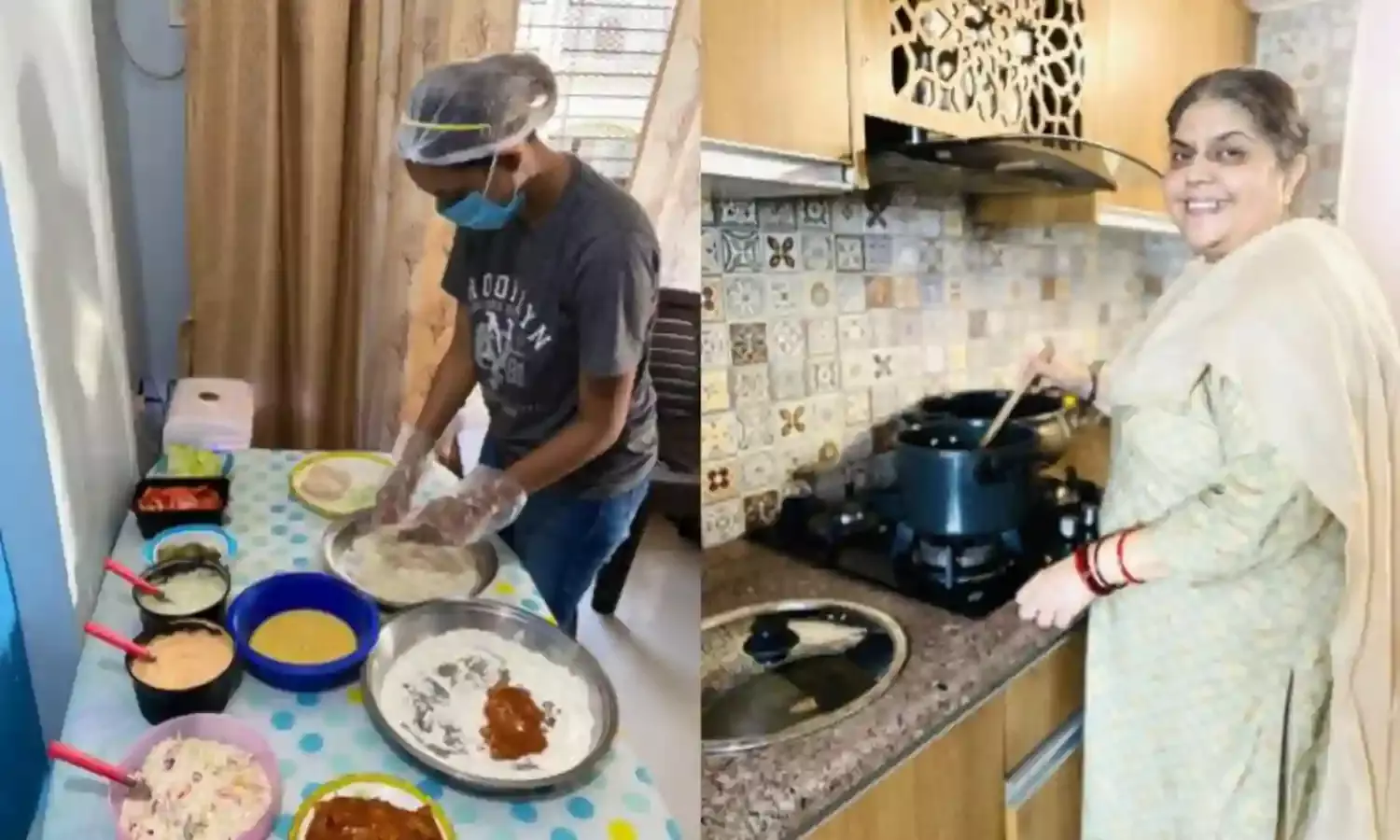
A sports producer, a professional footballer and a chef in Mumbai’s Borivali, found themselves without work when the lockdown was announced. They sat and wondered what they’ll do next, when they ‘stumbled’ upon the idea of delivering burgers from home. They named it “The Accidental Burger House.”
Similar stories are found across the country. Afraid she'll be out of work, Ajanya Leeladharan started Spill the Chai that delivers cakes and other bakery products across Calicut.
Lubna Shah, a homemaker in New Delhi, her daughter, Natascha Shah, and a friend, Prerna Sharma, wondered what they’d do with all their free time. Together they started delivering Kashmiri food in South Delhi.
Noor Sahar, an event manager, returned to her house in Daryaganj, Delhi, and helped her mother, Shakeela Qadri, start Shakeela Kitchen.
“Mujhe shuru se hi khilaane ka shauk raha tha. Ghar wale bhi shaukeen the. Phir shaadi kar gaye. Wahaan pe bhi shaukeen the khaane ke. Sab yeh bhi kehte the mazaak mein tum restaurant khol lo. Mera mann tha kaafi time se kuch karne ke liye magar time hi nahi mila. Ab waqt mila toh humne shuru kar diya (I loved feeding people from the beginning. My family loved my food. Then when I got married, my in-laws loved it too. Everyone would lightly suggest I open a restaurant. I really wanted to start something, but I never got the time. Now, I found the time, so, I started it),” said Shakeela.
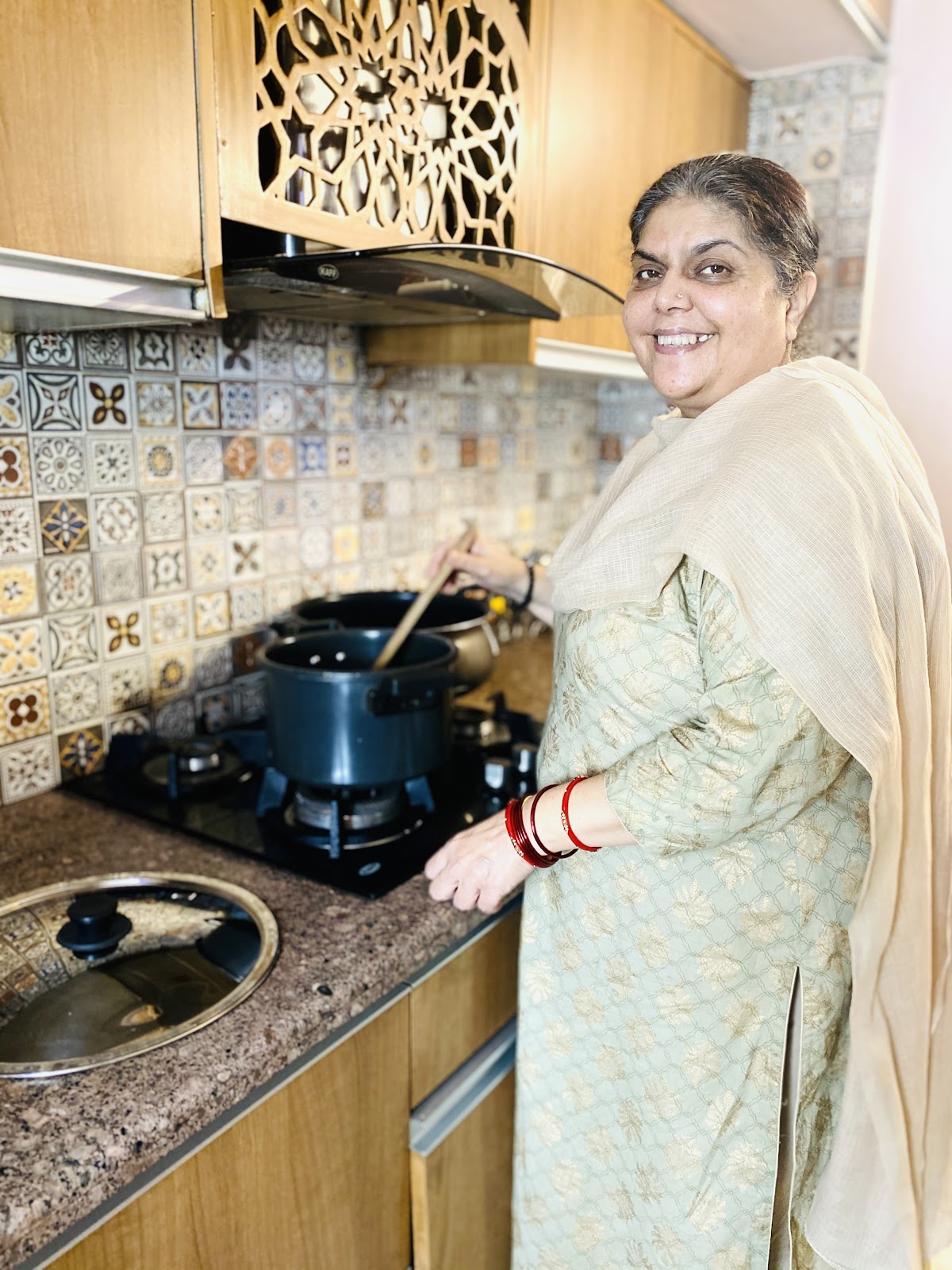
(Lubna Shah at work in her kitchen)
Some, like Lubna Shah, had prior experience in the food business. Her venture, Mehfil Delhi, started in 2019, as a home dining experience to introduce people to Kashmiri culture. During the lockdown it transitioned to food deliveries. For others, like Ajanya Leeladharan, it was a completely new experience. “I never baked a cake before. It was my sister’s birthday on April 22. We did not have any option other than baking a cake at home. That’s how I started baking,” said Ajanya.
For all of them, the lockdown seemed like a golden opportunity to start food ventures. “Burgers, here in IC Colony are not easily available. There was only one burger joint in the colony. But it had to close because of this lockdown and it used to do very well on the weekends. So, we thought we’ll just give it a try,” said Lorna Tone, a sports producer, one amongst the team of four running The Accidental Burger House.
“We started off very small. On the first day we made five burgers for families to try and give us feedback. From 5 burgers, the next step was 20 burgers. Now we only do it Friday, Saturday and Sunday. We deliver 60 burgers a day,” Lorna told THE CITIZEN.
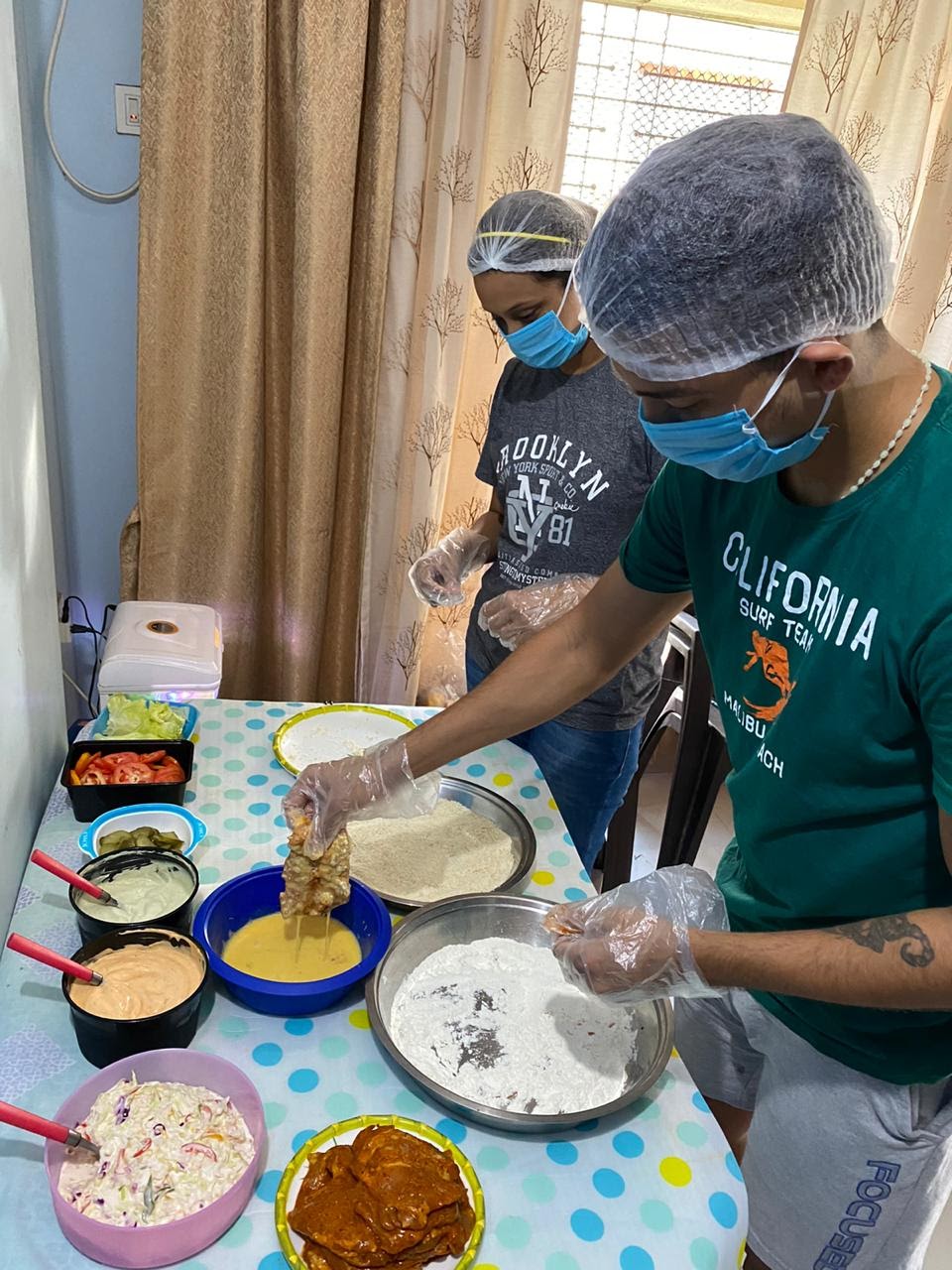
(Keegan Pereira and Lorna Tone Assembling Burgers)
Most of these businesses got the word out through friends, family and social media. “Instagram is a great platform. We get 90 percent of our orders through Instagram. Many people were already following me, or my mother, or my friend, who is a business partner, Prerna, on Instagram,” said Natascha Shah.
Home chefs’ businesses work because it is felt they offer safer and healthier alternatives to restaurants. “Because of the pandemic I feel safer ordering from home chefs versus restaurants. In terms of taste there is an evident freshness and soul in the food, it's lighter and healthier. There is a personal touch. The menus are small and curated so you know everything is done on order and obviously there is the aspect of supporting these budding businesses to the best of our abilities,” said Smity Kapoor, a resident of Noida, who frequently places orders with home chefs.
On their part, home chefs try to do as much as they can to assure people their food is safe to consume. Even for deliveries, many only employ people they trust. “For delivery, we did not want to get in touch with a Zomato or a Swiggy. We have my brother-in-law delivering. We wanted to keep it within the family, so that our customers are satisfied that even when they pick up the food, the person is not coming from someplace they don’t know,” said Lorna Tone.
The lockdown presented a golden opportunity for home chefs but it came with several challenges too. “Baking material was not available. You will not get this in normal shops. I did not have a cake mould when I started. I had to do it in normal utensils,” said Ajanya Leeladharan.
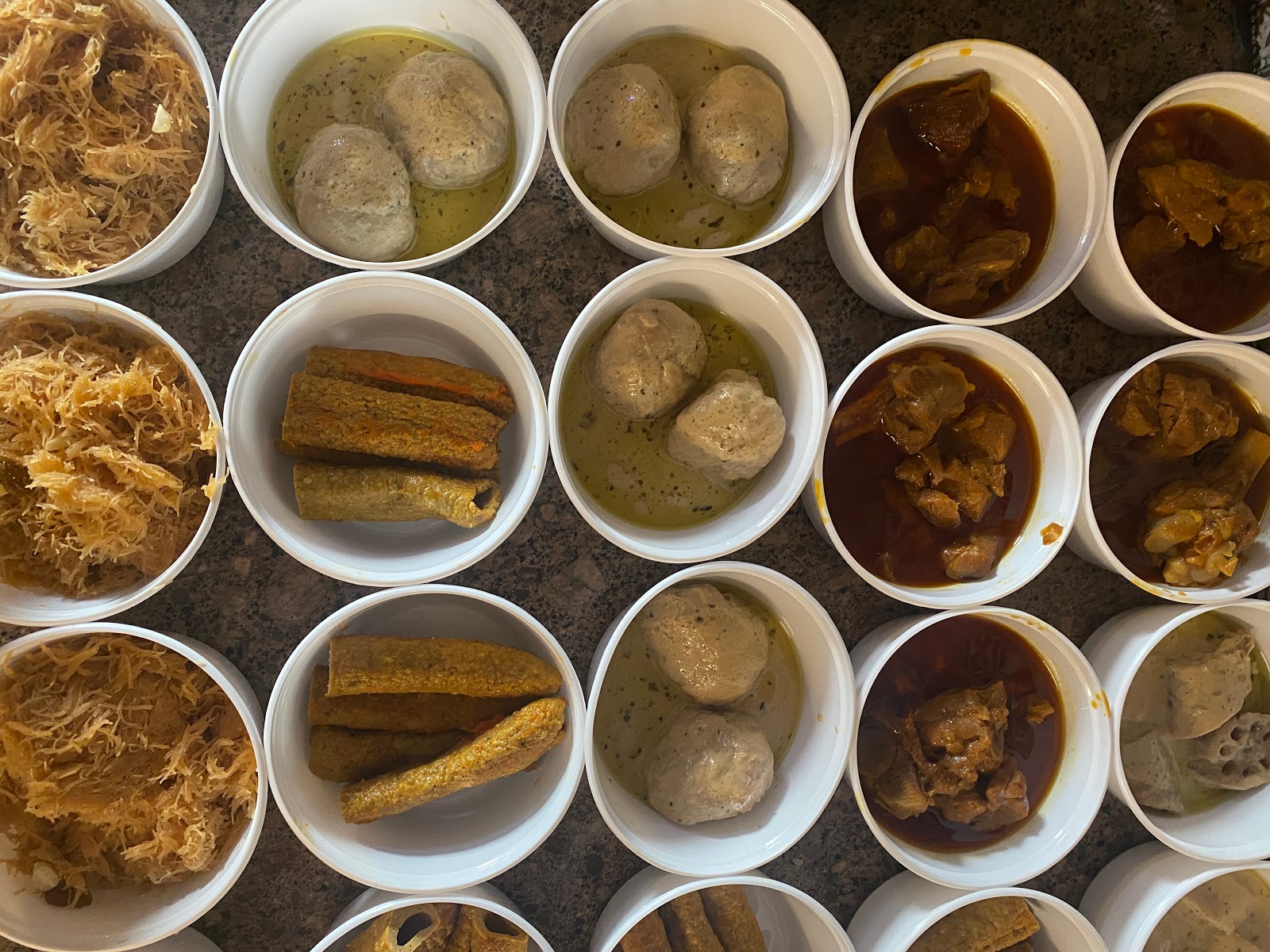
(Mehfil Delhi's food- packed and ready for delivery)
For Lubna Shah and Natascha Shah packaging material was hard to come by. “We suddenly decided to do this. Initially, it was very difficult to procure delivery boxes. We could get our hands on bio-degradable boxes which I thought was a great idea because we want to be environment friendly. But it didn’t work that well because the curry would leak and it was very difficult for our guy to take all those heavy packets,” said Natascha Shah.
As the number of home chefs grew, so did the competition. “Before there might have been 20-25 people who were in the business. Now, I think there are more than 200. Just in Calicut. I have started noticing other pages on Instagram. Every time I go to a shop that sells baking products I meet a friend or a family member. They tell me that they have started taking orders. I’m like, oh really? Even I have,” said Ajanya.
“We [me and my sister] used to pass these shops [those selling baking products] and think, who buys stuff from here. Why have they opened just for baking? Now we are standing in queues. Now there are a minimum 20 people in the queue. From morning to evening, same situation. There are traffic jams too,” said Ajanya.
There is a vast range of food made available through home chefs. “People are doing cakes, bakes, gluten free items. There’s a gentleman who makes Theplas on the weekend. He loves making Gujarati snacks. We have one girl who does smoked meats. Stuff that you wouldn’t normally get in a supermarket, but very common abroad. There are people who are doing Kombucha. Even jams, pickles, non-vegetarian pickles, fruit preserves that you wouldn’t get otherwise,” said Sarthak Grover, who runs Zingg, a WhatsApp group that connects home chefs with customers in Gurgaon and South Delhi.
Most home chefs are women. “[On our platform] 80 percent of chefs are women and 40 percent of the chefs are women between the age of 40 and 60. So, middle-aged women with grown kids,” said Sarthak about the chefs connected to Zingg.
Home chefs have become so popular that several ancillary businesses have mushroomed to support this growing community. “There is a fundamental challenge of discovering local bakers and WhatsApp/ Instagram are good platforms to view pictures of the food items but still not easy to place orders from,” said Nakul Khanna, Founder of Assorted that swooped in to give customers a platform to discover and order from independent bakers and chefs in the National Capital Region.
This is not limited to India. Such food businesses are opening across the world. Before the pandemic, Manasi Khanna, a resident of Amsterdam, had started Tasty Talks that organised home chef meet-ups at people’s homes. “Amsterdam being an extremely multicultural city, is a great place for a cultural exchange like this. During the lockdown, we were forced to stop our events. Then I happened to see someone doing an online cooking party for fun. That’s when I thought that I could do it with my own business too. We ended up with nearly 50 online classes already with people logging in from various corners of the world. The best part is that people get a view of the kitchens of other countries which they are intrigued about and learning from a person residing miles away gives the participants a sense of authenticity,” said Manasi.
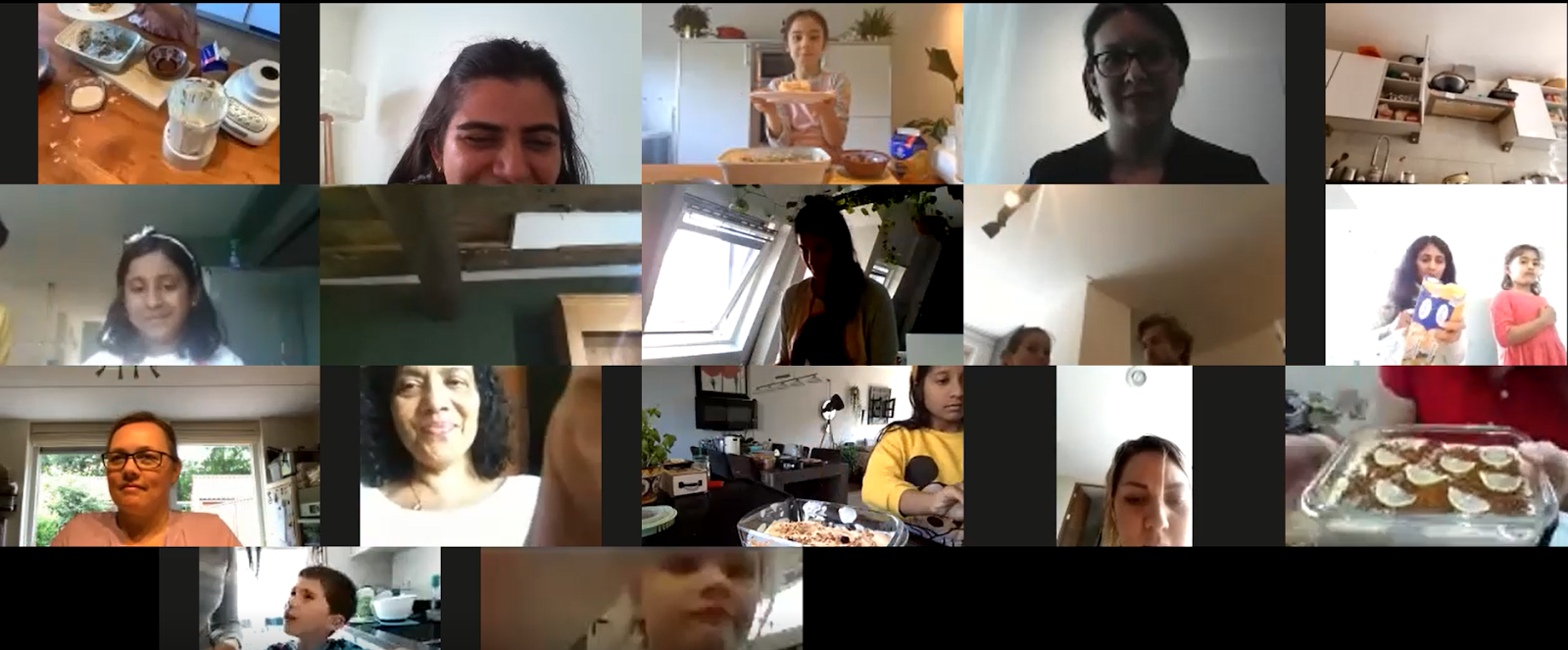
(Tasty Talks - Online Baking Class Conducted by 7 year old Maya from the Netherlands)
Several ventures plan to outlast the pandemic. Home chefs say they are successful and are here to stay. Some like Ajanya and Shakeela, even dream of opening cafes and restaurants. “Mera bohot mann hai ki main aage bhi kuch karoon. Upar waala karega toh restaurant bhi khol denge. Kaun nahi chahega badhne ke liye. (I really want to take this forward. If God wills, we will open a restaurant too. Who doesn’t like progress?)” said Shakeela Qadri



